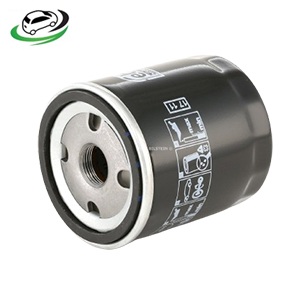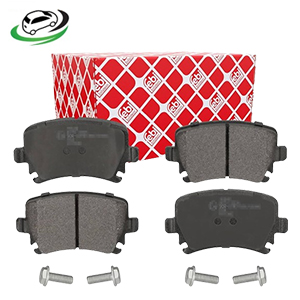-11%
Get Rear Brake Pad Kit AUDI A3/ A4/ B7/ TT 16540
Rear brake pad kits are an essential component of a vehicle’s braking system, contributing significantly to safety, performance, and longevity. Understanding their benefits and recognizing the signs indicating the need for replacement is crucial for maintaining optimal vehicle operation and ensuring safe driving conditions.
Benefits of Rear Brake Pad Kits:
- Enhanced Safety: Rear brake pads play a critical role in slowing down or stopping a vehicle. By ensuring the rear brakes are in optimal condition, brake pad kits contribute to overall safety on the road, especially during sudden stops or emergency situations.
- Improved Performance: Worn-out brake pads can compromise braking performance, leading to longer stopping distances and reduced responsiveness. Installing rear brake pad kits restores the braking system’s efficiency, providing better control and responsiveness while driving.
- Longevity of Brake Rotors: Quality brake pads help extend the lifespan of brake rotors by providing consistent frictional contact. By minimizing wear and tear on the rotors, rear brake pad kits contribute to the longevity of the entire braking system, reducing the frequency of costly rotor replacements.
- Quieter Operation: As brake pads wear down, they can produce squealing or grinding noises, indicating the need for replacement. Rear brake pad kits come with new pads designed for quiet operation, reducing noise and ensuring a smoother driving experience.
- Cost-Effectiveness: While neglecting brake maintenance can lead to more significant problems and costly repairs down the line, investing in rear brake pad kits is a cost-effective way to maintain the vehicle’s braking system. Regular replacement helps prevent damage to other brake components, potentially saving money on repairs in the long run.
- Consistent Braking Performance: New brake pads provide consistent frictional contact with the rotors, ensuring uniform braking performance across different driving conditions. This consistency is essential for safe and predictable vehicle operation.
- Compliance with Manufacturer Recommendations: Most vehicle manufacturers recommend periodic inspection and replacement of brake pads to maintain optimal performance and safety standards. Installing rear brake pad kits according to the manufacturer’s recommendations helps ensure compliance with these guidelines.
Signs a Car Needs Rear Brake Pad Kits:
- Squealing or Grinding Noises: High-pitched squealing or grinding noises when applying the brakes are common signs of worn-out brake pads. These noises occur due to metal-to-metal contact between the brake pad backing plate and the rotor, indicating the need for immediate replacement.
- Reduced Brake Responsiveness: If you notice a delay or decreased responsiveness when pressing the brake pedal, it could indicate worn-out brake pads. This reduction in braking effectiveness compromises vehicle safety and requires prompt attention.
- Vibrations or Pulsations: Experiencing vibrations or pulsations through the brake pedal or steering wheel during braking suggests issues with the braking system, including worn brake pads. These symptoms may indicate uneven wear or damage to the brake components, necessitating inspection and possible replacement.
- Thin Brake Pads: Inspecting the thickness of the brake pads through the wheel spokes can reveal their condition. If the pads appear excessively thin or worn down to the wear indicator, it’s time to replace them with rear brake pad kits.
- Dashboard Warning Light: Many modern vehicles are equipped with a dashboard warning light that illuminates when the brake pads are worn. If this light comes on, it’s essential to have the brake pads inspected and replaced as needed to maintain safe braking performance.
- Burning Smell: A burning odor while driving or after stopping could indicate overheating brakes due to excessive friction from worn-out brake pads. Ignoring this sign could lead to further damage to the braking system and compromise safety.
- Uneven Brake Pad Wear: Inspecting the brake pads for uneven wear patterns can help diagnose underlying issues with the braking system. Uneven wear may indicate problems with calipers, brake hardware, or hydraulic components, necessitating thorough inspection and corrective action.
Follow us on Facebook for more parts.



